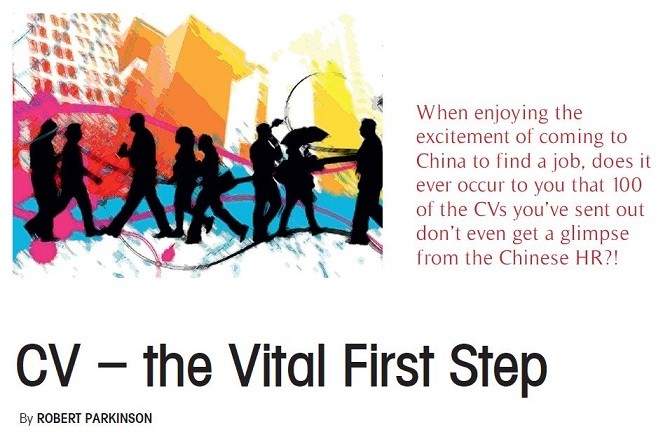
Do you know that logistic industry is in the shortage of talent? Find out the answer in Robert Parkinson’s article on Business Tianjin. As the development of economic globalization and the rise of the network economy move ahead quickly, global logistics services start to accelerate development. Because of logistic employee shortages, this sector is now one of the top 12 talent shortage industries! For human resource professionals, have you started to consider how to attract qualified logistics talent to stimulate business development? Come and read the insights from Robert!
As the development of economic globalisation and the rise of the network economy move ahead quickly, global logistics services start to accelerate development. Because of logistic employee shortages, this sector is now one of the top 12 talent shortage industries. Therefore, human resource managers should pay closer attention to hiring qualified staff and maintain current logistics talents.
It is common knowledge that the modem logistics is the integration of transport, warehousing and information industry, the service industry is an essential part of the national economy. In the transportation, storage, packaging, distribution processing, information handling and other aspects of company operations, each step demands a large number of personnel involvement. The demand for logistics talent is forecasted to increase by 400,000 per year in the 12th Five-Year Plan (2011-2015). However, the number of logistics graduates is only 4 million per year, which cannot satisfy the high demand. Furthermore, the educational qualifications of current logistics staff are much lower than the average standards of other industries.
As a human resource manager, you should start to consider how to attract qualified logistics talent to stimulate business development. Before planning a strategy of logistic staff recruitment, you should clearly understand the meaning of logistics talent first. Logistics operations not only require talented individuals, they also need to hire sales people, purchasing people, and supply chain management personnel.
Sales People
Rather than merely looking at the candidate’s current shipments, companies should recruit sales people fitting their own strengths and weaknesses, in order to utilise the strengths to overcome the weaknesses and to take advantage of the opportunity to avoid the threats. Companies should realise that only a small proportion of sales person are actually qualified for their business niches. Consequently, it becomes incrementally important to have the selling point ready to attract those truly value adding sales people.
Purchasing Personnel
Since procurement is becoming increasingly important in the company’s strategy, it is an essential component of a firm’s supply chain in order to gain market share in the intense competition. Nowadays, procurement is becoming more diversified, multinational, and interdepartmental. The procurement officers need to have good foreign language communication skills, and have an acute sense of influencing factors such as fluctuations in raw material prices and climatic changes.
Supply Chain Management Personnel
The competition has been changed from being primarily amongst companies or amongst regions to being amongst supply chains. China has becoming the world’s manufacturing base, and numerous enterprises have realised that supply chain management is the key link to produce excellent firms. Meanwhile, the supply chain integrates the information system of enterprise, which means that the supply chain managers are required to have hands-on experiences in sales forecasting, purchasing, planning, material delivering, imports and exports. We can say that supply chain management staff could regard these as the crucial factor of a corporation success or failure.
Moreover, language skills are requested- especially English, Japanese, Russian and German. Based on the geographic analysis, Pearl River Delta (Guangzhou, Shenzhen, and Zhuhai) is the busiest and the densest airlift region. The Yangtze River Delta (Shanghai, Nanjing, Suzhou, Wuxi, Hangzhou and Ningbo) is regarded as the most promising region by insiders. The Bohai Rim region’s (Beijing and Tianjin) logistics firms, which focus largely on purchasing and transportation, are suffering from a shortage of talented people with computer skills and financial and operation management experience. The Midwest area is lagging behind the other regions because of the geographical conditions being so restrictive, and transportation managers, warehouse supervisors and logistics operation mangers are needed more than the positions related to international business and customs.
Keeping your present talents is more difficult than recruiting because of the unstable working time, high intensity operations and bored mechanical repetition. Particularly for the young employees, once the desired does not conform to the actual growth rate, they will resign immediately.
In order for a company to retain logistics talents, firstly it must provide career advancement opportunities and pursuit for excellence objectives. Secondly, companies should advocate that talent and enterprise will grow up together, and share the happiness and success with the employees. Remember that emolument is the first element of attracting the talent, but it is not the best way to hold onto the great workers. Finally, companies must be honest with their employees, make them feel that they are not only a part of the company, but also a business partner to the company.
Happy Work
Creating a happy working environment is the fundamental element for the existence of development. For the service industry, particularly for the logistics industry with high technology content and high quality team work, the quality of the employee is the lifeblood of the enterprise. Keeping talented staff members is the key factor to maintaining the core competence in order to achieve the objective. For instance, DHL adopts an open management mode to keep staff morale high. Liguo Zong, the manager of the ground operation department of DHL says that “to make our clients happy, first of all we should make our employees happy, because only in this way happiness will convey to the customers through our employees’ happy face and hands”.
Providing Developmental Space
Corporations offer ideal growth and development space to ensure the continuous improvement of its employees, and it also helps to turn talent into full performance, utilise their potential capabilities and realise their own value to a greater degree as well. Many workplace environments offer some latitude for self-motivated and creative employees to suggest ideas for new work place initiatives. Employees will strengthen the sense of belonging to the firm and sense of responsibility, and consciously stay in the company.
Setting up a Rewards System
Wage, bonus and welfare incentives
Wages influence employee behavior effectively, and enterprises can retain talent with high salaries. There are also bonus schemes that can be used mainly including monthly bonuses, quarterly bonuses, and annual bonuses. The commonly used incentives are treatment of employees’ health care, housing and social insurance.
To honour outstanding employees
Even though high wages and bonuses are very attractive, they are not the best ways to reward employees. As a human resource manager, you might want to consider other rewards systems. Take an example from FedEx. They offer several major awards including Bravo Zulu which is a reward for outstanding performance, the Finders Keepers is the award for the staff member that contacts customers every day and brings new customers to the company, the Best Practice reward employees whose contributions exceeds the company’s goals, the Golden Falcon Awards are given to staff who are nominated by the customer and company management; and the Star/Superstar Awards are the highest awards of work performance in the company.
China’s logistics industry is booming year on year, which indicates that the number of logistics talent is also eager to find its place. However, since the number of applicants cannot satisfy the huge demand, more and more employees are resigning their jobs in search for opportunities. Human resource managers should focus on attracting logistic talents including sales people, procurement personnel and supply chain management staff through different methods. For instance, by providing career advancement opportunities, offering a competitive salary and setting out reward and punishment systems. In the end, companies need to retain the talented employees by giving full play to each person’s potential, providing developmental space, and creating reward systems in order to develop long-term competitiveness in the industry.
Read the original version at:http://www.businesstianjin.com/index.php?option=com_content&view=article&id=7115:hr-hr-attention-china-logistics-talent-under-the-spotlight&catid=192:2013-october&Itemid=100
By Robert Parkinson, CEO and Founder of RMG Selection



